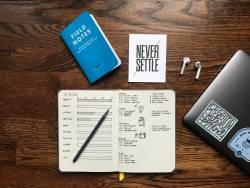
‘How Do You Handle Stress?’ – Best Way to Handle This Interview Question

Many employees understand that certain roles come with a lot of stress and will want to hire candidates who can handle the stress. This is why the question: 'how do you handle stress?' normally pops up during interview sessions.
The way you answer this question can determine whether you will be hired or whether the interviewer will pick another candidate, regardless of your resume and performance in other stages of the hiring process.
What the Interviewer Wants To Hear
Most times, the interviewers ask this question because they know that the job you are interviewing for comes with stress. They want to be sure that you can deal with the pressure. They may not be able to verify whatever claim you make during the interview, but they will base their decision on it.
Interviewers also want to understand how stress outside of work can affect your performance. They also want to make sure that you don’t create stressful situations for yourself. Every employer wants to hire candidates who can deal with work and personal stressful situations and perform well on the job.
The Right Way to Answer the Question

There are a few wonderful ways to give answers that can convince interviewers that you handle stress very well, but the best way is to give specific examples of how you handled stressful situations well in the past. You should try to convince them that stress can actually make you more productive.
Sample Answers
Here are some sample answers:
Sample 1
I find that pressure can be helpful in many ways. In the past, I've had to deal with good pressure, like having many assignments or upcoming deadlines. I find that such pressure helps me to stay motivated and productive. I understand that too much pressure can result in stress, but I'm really skilled at balancing multiple projects and meeting deadlines. I hardly find myself overly stressed. At one point, for instance, I had three sizeable projects due in a week, and it was real pressure. However, I was able to cope because I created a schedule and followed it religiously. I was actually able to complete all three projects ahead of time, avoiding unnecessary stress at the same time.
Why this answer will work – This sample answer clearly shows that the candidate understands how to work under pressure and achieve more. Interviewers can easily believe that the candidate thrives in stressful situations.
Sample 2
I understand that stressful situations can arise in any workplace, so I always choose to react to situations than to stress. This strategy helps me to handle the situation without getting overly stressed. When dealing with an unsatisfied customer, for instance, I focus on the task, which is solving the problem at hand rather than focusing on the stress the customer may be radiating. I also understand how to communicate efficiently during such situations to reduce the stress for myself and the customer.
Why this answer works – This answer can convince interviewers to believe that a candidate easily turns stressful situations around. It is easy to believe that the candidate can radiate positive energy instead of negative energy during stressful situations.
Tips for Giving the Perfect Answer

Depending on the interview situation, you need to give an answer that will show that you can handle the stress that comes with the role you are interviewing for. Here are a few tips on how to come up with the perfect answer for every situation.
1. Convince the employer that your style of handling stress works
This is why answering the question with some examples of past experiences helps so much. The interviewer wants to make sure that you can adapt well to stressful situations, and there is nothing that convinces better than examples of past experiences and how you rose to the occasion.
2. Focus on success
Employers are after candidates who can achieve success even under stressful conditions. When you answer the question, focus on success instead of the stressful situation. You can talk about stressful conditions, but ensure you demonstrate to the employer that you are always able to achieve success without becoming overly stressed.
3. Understand when the role is particularly stressful
There are job roles that are particularly stressful. When you are applying for such roles, the employer needs to understand that you are used to such a role and can comfortably deal with the stress that comes with it. You will need to convince the interviewer that you are actually used to working under stressful situations and can always achieve success.
What Not To Say
Her are some things you should never say:
1. Avoid mentioning that you created a situation
It is easy to mistakenly suggest that you created a stressful situation for yourself. Saying that you waited till a project was nearly due, for instance, will give the interviewer the impression that you put yourself in needlessly stressful situations.
2. Don’t suggest that you were really stressed
In an attempt to convince interviewers that they can handle stress, some make the mistake of stressing how stressed they were in the past. Focusing on the stressful situation will seem like complaining, which is not what your next employer wants. Emphasize how you dealt with stressful situations and not how the stress bothered you.
Final Words
When you are interviewing for a job, your potential employer wants to ensure that you can comfortably handle the possible stress that comes with the job. When you are asked how you handle stress, ensure that you convince the interviewer that you have handled stressful situations in the past and that you don't let stress get the best of you. While trying to convince that you are used to handling stress, focus on the success achieved rather than how difficult the stressful situation was. The tips here can help you give the perfect answers that will land you the job. You should also practice properly before the interview and be ready for follow-up questions.













